


metal cnc shop is a computer numerical control (CNC) machining process that uses rotating tools to remove material from a Invar workpiece. The process is controlled by a computer program that uses precise measurements and instructions to achieve a high level of accuracy and repeatability.
One of the key attributes of metal cnc shop technology is its ability to handle a wide range of metal materials, including aluminum, steel, titanium, Invar, etc., making it suitable for a variety of industrial sectors such as Solar energy , the automotive and medical industries . With its precision and high-speed machining capabilities, it is able to produce complex designs and tight tolerances, meeting the demand for high-quality and customized metal parts. In terms of parameters, metal cnc shop machine tools are equipped with multiple axes, usually three to five axes, providing a high degree of flexibility and operability for processing operations. These machines are also equipped with different types of cutting tools such as drills, $keyword{8}, end mills, and lathes to perform various cutting processes depending on the desired end product. Moreover, metal cnc shop machine tools have a wide speed and feed rate control range, which can be adjusted for different materials and part characteristics to achieve the best cutting results. The accuracy of these machines is measured in microns, ensuring high precision and repeatability in production. In addition to these technical specifications, metal cnc shop technology also offers automation and productivity advantages. By utilizing computer programming, human error is reduced and the production process is made faster and more efficient. It also allows for rapid prototyping and quick design changes, making it a cost-effective solution for low-volume and custom production.
| Material: |
Aluminum (6061-T6, 6063, 7075-T6,5052) etc... Brass/Copper/Bronze etc... Stainless Steel (302, 303, 304, 316, 420) etc... Steel (mild steel, Q235, 20#, 45#) etc... Plastic (ABS, Delrin, PP, PE, PC, Acrylic) etc... |
| Process: | CNC Machining, CNC turning, CNC milling, CNC lathe machining, CNC boring, CNC grinding, CNC drilling etc... |
| Surface treatment: |
Clear/color anodized; Hard anodized; Powder-coating; Sand-blasting; Painting; Nickel plating; Chrome plating; Zinc plating; Silver/gold plating; Black oxide coating, Polishing etc... |
|
Gerenal Tolerance: (+/-mm) |
CNC Machining: 0.006 Turning: 0.002 Grinding(Flatness/in2): 0.002 ID/OD Grinding: 0.005 Wire-Cutting: 0.004 |
| Certification: | ISO9001:2008, ROHS |
| Production capacity: | depend on complicacy of different products and the quantity |
| Experience: |
15 years of CNC machining products 3 years of automation machine manufacturing |
| Packaging : |
Standard: pearl cotton and bubble bag, carton box and seal For large and big quantity: pallet or as per customers' requirement |
| Lead time : | In general:7-12days |
| Term of Payment: | T/T, Paypal, Trade Assurance etc... |
| Minimum Order: | Comply with customer's demand |
| Delivery way: | Express(DHL,Fedex, UPS,TNT,EMS), By Sea, By air, or on your requirement |



metal cnc shop FAQs Guide. we will delve into the specifics of metal cnc shop machining and explore its advantages, applications, and key considerations for successful implementation. Whether you are new to the field or looking to expand your knowledge, this guide will provide a comprehensive overview of this revolutionary manufacturing process. So, let's begin our journey into the world of metal cnc shop machining!
1.What are the common industries that utilize metal cnc shop machines?
As one of the metal cnc shop market leaders, we are known for innovation and reliability. 1. Automotive 2. Aerospace 3. Medical 4. Electronics 5. Defense 6. Marine 7. Tool and Die 8. Energy 9. Construction 10. Agriculture
2.Is it possible to perform reverse engineering using metal cnc shop machining?
Yes, it is possible to perform reverse engineering using metal CNC machining. This process involves taking a physical object and using a CNC machine to create a 3D model of the object. This model can then be used to create a new version of the object or to modify the existing object.
3.What are the common applications of metal cnc shop machining in the aerospace industry?
We have established a good reputation and reliable partnerships within the metal cnc shop industry. 1. Aircraft engine components: CNC machining is used to create components for aircraft engines, such as turbine blades, compressor blades, and other engine components. 2. Aircraft structural components: CNC machining is used to create components for aircraft structures, such as fuselage frames, wing spars, and other structural components. 3. Aircraft landing gear components: CNC machining is used to create components for aircraft landing gear, such as landing gear struts, wheels, and other components. 4. Aircraft interior components: CNC machining is used to create components for aircraft interiors, such as cabin walls, seats, and other interior components. 5. Aircraft instrumentation components: CNC machining is used to create components for aircraft instrumentation, such as navigation systems, autopilot systems, and other instrumentation components.
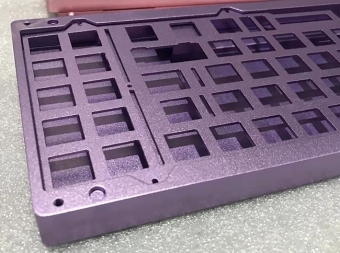
4.What is the difference between CNC milling and CNC turning?
Being one of the top metal cnc shop manufacturers in China, We attach great importance to this detail. CNC milling is a machining process that uses computer numerical control (CNC) to control the movement of a cutting tool to shape a workpiece. It is used to create complex shapes and features in a variety of materials. CNC turning is a machining process that uses computer numerical control (CNC) to control the movement of a cutting tool to shape a workpiece. It is used to create cylindrical parts with a rotating cutting tool.
5.About metal cnc shop production skills training
Metal CNC production skills training is a type of training that teaches individuals how to use CNC machines to produce metal parts. This type of training is typically offered by technical schools, community colleges, and other educational institutions. It can also be offered by companies that specialize in CNC production. The training typically covers topics such as machine setup, programming, and operation. It also covers safety procedures and quality control.
6.What are the common challenges faced in metal cnc shop machining?
Our metal cnc shop products undergo strict quality control to ensure customer satisfaction. 1. Tool wear: CNC machining of metals can cause rapid tool wear due to the hardness of the material. 2. Heat buildup: Heat buildup can cause warping and distortion of the workpiece. 3. Tool breakage: High cutting forces can cause tools to break, resulting in costly downtime. 4. Surface finish: Achieving a smooth surface finish can be difficult with metal CNC machining. 5. Tolerances: Maintaining tight tolerances can be difficult with metal CNC machining. 6. Cost: Metal CNC machining can be expensive due to the cost of materials and the complexity of the process.
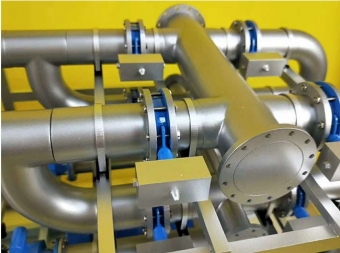
7.How does the programming process differ between different metal cnc shop machines?
metal cnc shop is not a product only, but also can help you comes to money-making. The programming process for different metal CNC machines can vary depending on the type of machine and the complexity of the job. Generally, the programming process involves creating a program that tells the machine how to move and what operations to perform. This program is typically written in a language specific to the machine, such as G-code or Fanuc. The program is then loaded into the machine and the machine is set up to run the program. Depending on the complexity of the job, additional programming steps may be required, such as setting up tool paths, setting up work offsets, and setting up machine parameters.
8.What are the most commonly used cutting tools in metal cnc shop machining?
We have established long-term and stable partnerships with our suppliers, so we have great advantages in price and cost and quality assurance. 1. End Mills: End mills are the most commonly used cutting tools in metal CNC machining. They are used to cut slots, pockets, and contours in a variety of materials. 2. Drills: Drills are used to create holes in a variety of materials. They are available in a variety of sizes and shapes to accommodate different applications. 3. Reamers: Reamers are used to enlarge existing holes in a variety of materials. They are available in a variety of sizes and shapes to accommodate different applications. 4. Taps: Taps are used to create internal threads in a variety of materials. They are available in a variety of sizes and shapes to accommodate different applications. 5. Countersinks: Countersinks are used to create a conical shape in a variety of materials. They are available in a variety of sizes and shapes to accommodate different applications.
9.About metal cnc shop patent
Metal CNC patents are patents that cover the use of computer numerical control (CNC) machines to create metal parts. CNC machines are automated machines that use computer-controlled instructions to cut, shape, and form metal parts. CNC machines are used in a variety of industries, including automotive, aerospace, and medical. CNC patents cover the use of CNC machines to create metal parts, as well as the software and hardware used to control the machines. CNC patents also cover the use of CNC machines to create complex shapes and patterns.
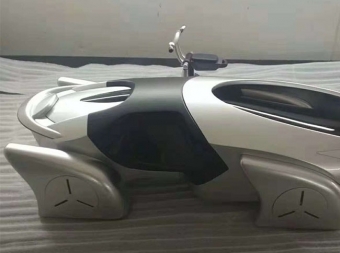
10.What is the definition of metal cnc shop?
Our products & services cover a wide range of areas and meet the needs of different fields. Metal CNC (Computer Numerical Control) is a manufacturing process that uses computer-controlled machines to cut and shape metal parts with precision. It is used to create complex shapes and components with a high degree of accuracy and repeatability.
11.What is the role of the spindle speed in metal cnc shop machining?
We are a professional metal cnc shop company dedicated to providing high quality products and services. The spindle speed is an important factor in metal CNC machining. It determines the speed at which the cutting tool moves across the material, and affects the quality of the finished product. A higher spindle speed will result in a faster cutting process, but can also cause the cutting tool to wear out faster. A lower spindle speed will result in a slower cutting process, but will also reduce the wear on the cutting tool. The spindle speed must be carefully adjusted to ensure the best results.
12.How does the material selection affect the cutting speed and feed rate in metal cnc shop machining?
We continuously upgrade our skills and knowledge to adapt to changing metal cnc shop market needs. The material selection affects the cutting speed and feed rate in metal CNC machining in several ways. Harder materials require higher cutting speeds and lower feed rates, while softer materials require lower cutting speeds and higher feed rates. The type of cutting tool used also affects the cutting speed and feed rate. For example, a high-speed steel tool will require a higher cutting speed and lower feed rate than a carbide tool. Additionally, the type of cutting fluid used can also affect the cutting speed and feed rate.
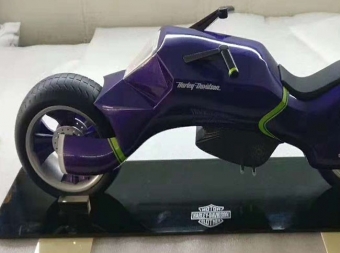
13.About metal cnc shop delivery date
The delivery date for metal CNC parts will depend on the complexity of the parts, the size of the order, and the availability of the materials. Generally, the delivery time for metal CNC parts can range from a few days to several weeks.
14.Is it possible to perform multiple operations on a single piece using metal cnc shop machining?
Yes, it is possible to perform multiple operations on a single piece using metal CNC machining. Depending on the complexity of the part, multiple operations such as drilling, milling, turning, and tapping can be performed on a single piece.
15.About metal cnc shop production capacity
Metal CNC production capacity is determined by the size and complexity of the parts being produced, the type of CNC machine being used, and the number of machines available. Generally, CNC machines are capable of producing parts with high accuracy and repeatability, and can produce parts with complex geometries. The production capacity of a CNC machine is determined by the number of axes it has, the speed of the spindle, and the size of the workpiece. The production capacity of a CNC machine can be increased by adding additional machines or by increasing the speed of the spindle.
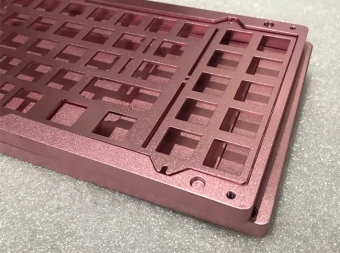
16.How does the size of the cutting tool affect the accuracy of metal cnc shop machining?
We operate our metal cnc shop business with integrity and honesty. The size of the cutting tool affects the accuracy of metal CNC machining in several ways. A larger cutting tool will produce a larger cut, which can lead to inaccuracies if the part is not designed to accommodate the larger size. A smaller cutting tool will produce a more precise cut, but it may also require more passes to achieve the desired accuracy. Additionally, the size of the cutting tool will affect the speed of the machining process, as larger tools require more time to complete a cut.
17.What are the different types of tool changes used in metal cnc shop machining?
1. Manual Tool Change: This is the most basic type of tool change and involves manually exchanging the cutting tool by hand. 2. Automatic Tool Change: This type of tool change is automated and is typically used in CNC machining centers. The tool is automatically exchanged by a robotic arm or a tool changer. 3. Quick Change Tooling: This type of tool change is used in CNC lathes and involves a quick-change tool holder that allows for rapid tool changes. 4. Tool Presetter: This type of tool change is used in CNC machining centers and involves a tool presetter that measures the tool and sets it to the correct position before it is used.